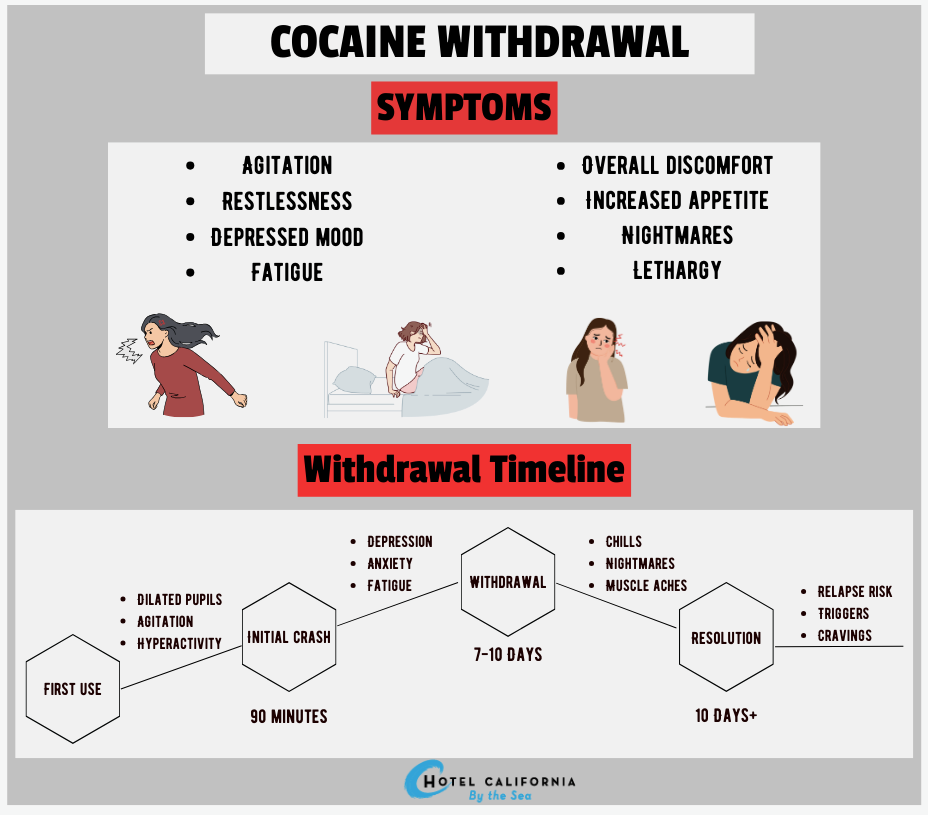Mental and Emotional Effects of Cocaine
Cocaine is one of the most addictive substances and can produce mental and emotional side effects when taken in excess. Cocaine is a strong central nervous system stimulant drug that interferes with the re-absorption of dopamine, a neurochemical associated with functions such as pleasure and movement. It speeds up the activity in your brain to produce feelings of alertness, intense energy and euphoria. Because cocaine impacts the dopamine levels in the brain, unnatural and excessive amounts of dopamine can also cause adverse effects such as anger, aggressiveness, hallucinations and delusions.

Pure cocaine was first extracted from the leaf of the Erythroxylum coca bush found in South America in the 19th century. Due to its strong effects, it quickly became a popular ingredient in medicines such as throat lozenges and tonics. Due to its rising popularity, the Pure Food and Drug Act of 1906 required dangerous ingredients such as cocaine to be listed on its product labels. Later on, the Harrison Act of 1914 outlawed the use of cocaine altogether in any over-the-counter products, making it only available through a prescription.
Elicit cocaine use and recreational use gained popularity in the 1960s and 1970s when users would smoke, rub into their gums, inject or snort cocaine powder. While using small amounts of cocaine results in mental alertness, talkativeness, energy, euphoria and heightened sensitivity, excessive amounts could lead to dangerous adverse effects. Users could experience increased anxiety, panic attacks, paranoia, bizarre and erratic behavior and sometimes violent behavior.
How does Cocaine work?
The mesolimbic dopamine system, also known as the reward pathway, is stimulated by various types of reinforcing substances. Cocaine is one of the most addictive stimuli. Cocaine binds to the dopamine transporter to block the removal of dopamine from the synapse. When dopamine accumulates in the brain, it causes excess of the chemicals for the brain to use. This results in feelings of euphoria and teaches the brain that this type of reward is desirable and to continue to seek it out again and again.
With increased levels of neurochemicals in the pleasure center, it can also result in changes in other parts of the brain impacting norepinephrine and serotonin. These chemicals affect feelings of aggression, hyperactivity, impaired judgment and paranoia.

Cocaine Addiction
Cocaine addiction is a mental illness that occurs due to the imbalance of the dopamine system. It can lead to reduced brain activity in areas of the brain related to emotional processing and error awareness. This can result in problems with social interactions and placing value on one’s own personal gains when interacting with other people. This can also make users less concerned about how their behavior affects themselves and the people around them. In other words, cocaine addicts often display signs of blunt emotions and egocentrism because they lack emotional and social processing skills.
Mental and Emotional Effects of Cocaine
- Cocaine-induced psychotic disorders with hallucinations or delusions – During cocaine use, there is an excess amount of dopamine that floods the brain resulting in excessive amounts of dopamine available. Hallucinations and delusions are often caused by an imbalance of dopamine in the system.
- Cocaine-induced delirium – Delirium can become a potentially fatal symptom. It is marked by severe fluctuating feelings of confusion and an automatic nervous system instability. Delirium can also be accompanied by other psychotic systems such as paranoia, hallucinations and agitated behavior.
- Cocaine-induced mood disorders – Symptoms of anxiety and depression are common with cocaine users.
- Cocaine-induced paranoia – Paranoia and suspiciousness can occur with excessive use of cocaine. It occurs in about 68-84% of cocaine users. Cocaine-induced paranoia can be transient lasting anywhere from a few hours to as long as days or weeks.
- Cocaine-induced psychosis – Psychosis appears more commonly in the use of crack cocaine compared to other methods of cocaine use. It is also one of the most common long-term adverse effects of cocaine abuse. As the tolerance and dependence of cocaine increases, the drug leads to the inability to feel pleasure except while using the drug. This can lead to an overall inability to experience any type of positive emotions or happiness resulting in cocaine cravings and eventually cocaine addiction. The amount of cocaine used and the onset of first use are correlated with the development and severity of cocaine-induced psychosis. These side effects and symptoms of cocaine-induced psychosis can also mimic those of other psychological disorders such as schizophrenia. This can make it even more difficult to diagnose.
- Cocaine-induced aggression – Researchers have found that violent behavior associated with cocaine abuse can be predictable based on the imbalanced levels of neurotransmitters in the brain. Violent behaviors such as homicide and suicide have been known to be directly linked to cocaine abuse. This is because cocaine can produce feelings of edginess and paranoia, which can ultimately lead to violent and aggressive behaviors.
- Difficulty thinking logically
- Difficulty with decision-making
- Difficulty with attention and judgment
- Difficulty with mental flexibility
Check Your Insurance Coverage for FREE
Find out if your insurance covers addiction treatment in minutes. We accept most insurance!
Immediate Effects of Cocaine Use
Illicit and recreational users of cocaine are often chasing the immediate effects of cocaine use. This includes feeling wide awake, feeling more confident, having more energy and feelings of intense euphoria. The immediate effects of cocaine don’t last very long. The effects usually peak within 2-5 minutes and last anywhere from 10 minutes to a few hours depending on the dosage and if the cocaine was cut with other mind-altering substances.
Long-term Effects of Cocaine Use
Prolonged use of cocaine can impact the balance of dopamine levels in the brain. It causes a build up of the chemical, making the brain more sensitive and alters the way the body reacts when it comes to the reward system.
Over time, cocaine can cause stress receptors to become more sensitive and lead to increased feelings of dissatisfaction and negativity. This is especially apparent when the person is not using cocaine. Long-term users of cocaine can also develop a tolerance to the drug. This means the users will begin to need more or higher doses of cocaine in order to feel normal.
Long-term cocaine use can damage the brain reward pathway and into areas of the brain that are responsible for processing emotions and the development of memory and new information intake. In some cases, psychotic symptoms due to cocaine use can also induce symptoms of psychosis making it difficult to distinguish between cocaine-induced psychosis and schizophrenia.
Reach out to Hotel California by the Sea
We specialize in treating addiction and other co-occurring disorders, such as PTSD. Our Admissions specialists are available to walk you through the best options for treating your addiction.
Treatment for Cocaine Addiction and Abuse
Cocaine is a Schedule II controlled substance with a high potential for abuse and can produce both mental and emotional adverse side effects. Some can even lead to harmful and life-threatening consequences. Often the recreational use of cocaine induces a burst of energy and euphoria. This makes it more challenging to quit using the drug as the brain and body become tolerant and dependent.
Excessive use of cocaine can result in full-blown paranoid psychosis, losing touch with reality, paranoia, anxiety and depression. During cocaine binges, users can experience irritability, restlessness, panic attacks and other psychotic symptoms. Professional addiction treatment is the best option to address the user’s mental well-being after abuse and prolonged use of the drug.
Hotel California by the Sea provides a rigorous and effective substance use disorder program that includes treatment for cocaine addiction. Patients are cared for at different levels of treatment including detox, residential, PHP and IOP. We utilize evidence-based treatment methods such as CBT, DBT and EMDR therapy. Hotel California by the Sea is dedicated to providing the most up-to-date treatments to help our client overcome their addiction.
References:
https://nida.nih.gov/research-topics/cocaine
https://fortbehavioral.com/addiction-recovery-blog/how-cocaine-affects-your-mental-health/
https://www.mentalhealth.com/library/cocaine-addiction-mental-health-problems
https://www.psychologytoday.com/us/conditions/cocaine-use-disorder
https://www.medicalnewstoday.com/articles/effects-of-cocaine-on-your-brain
https://pmc.ncbi.nlm.nih.gov/articles/PMC181074
https://headspace.org.au/explore-topics/for-young-people/cocaine-effects-on-mental-health
